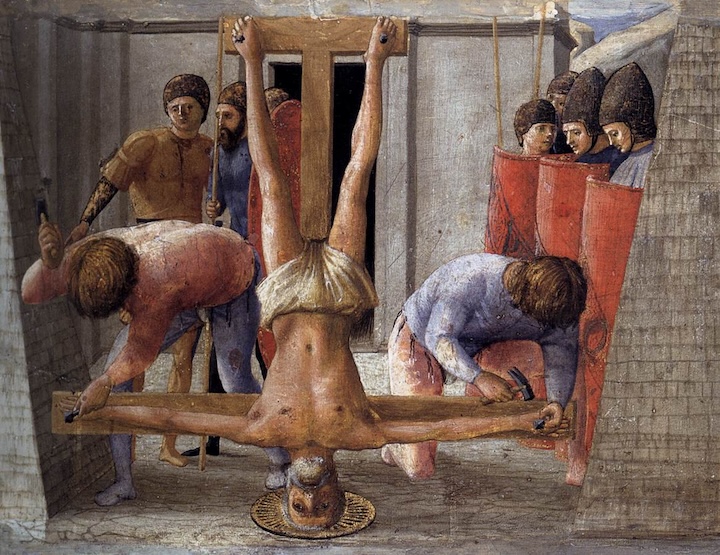Despite all the talk about the Holy Spirit at the Synod on Synodality, an objective observer would have to say that the tongues of fire that produced John’s Gospel, Paul’s Letter to the Romans, and Revelations seem to be at a loss for words as the event grinds on.
The great Irish poet W.B. Yeats, though not a Catholic, observed a century ago:
“The Holy Spirit is an intellectual fountain,” and did the Bishops believe, that Holy Spirit would show itself in decoration and architecture, in daily manners and written style. What devout man can read the Pastorals of our Hierarchy without horror at a style rancid, coarse, and vague, like that of the daily papers?
And Yeats never saw the “modules” of an Instrumentum laboris or listened to cloudy reflections about mission, communion, and participation.
The Catholic Church has the longest and richest cultural tradition in the world. Which must make the angels weep to see the threadbare, self-important, pseudo-sociological, pseudo-psychological, mind-numbing ecclesial language in which the current synod is being conducted.
It’s as if the Church has decided that its deep and wide inheritance from the Hebrew prophets, early Church Fathers, Greek philosophy, Roman law, and the whole subsequent history of saints and sages in our civilization can be put aside for the sake of “walking together.”
This rant takes its origin from the reporting on synodal discussions about LGBT, which began late last week. We’re not supposed to know what’s said inside the synodal hall. Some outlets close to the pope have even praised the restraint in talking to the media that synod participants have shown. Other outlets, also close, however, have easily found out from what they believe to be proper – because anonymous – sources that there were emotional debates between people re-affirming Church teachings about LGBT and others that called for greater “discernment” – the latter meeting with cheers in the hall.
Now, it’s already telling that the very acronym LGBT bulks so large among both enthusiasts and critics. But the Synod, which seems partly designed to catch up with the “world,” is – even in its most progressive elements – already far behind.
Canadian Prime Minister Justin Trudeau recently sought to defend himself from charges that he was attacking parental rights in education – which might have been a fruitful topic for this synod, by the way. He referred to protecting 2SLGBTQI+ people. Will we need another synod before long to tackle that development? And there are still many unused letters in the alphabet. And numbers.
“Homophobia,” it has also been dutifully reported, was rejected by all in the Synod hall. That’s fine if they meant that persons in the sexual minority should be treated civilly, like everyone else.
But as Catholics, we should not let ourselves be deluded by ideological artifices. When you casually accept the use of a term (LGBT) that was created for ideological purposes – and therefore applaud yourself for your humanity – you’re very close to intellectual and moral shipwreck.

To take the term “homophobia” literally, you’d have to believe that anyone who rejects or resists what until recently was taken to be a sexual aberration is himself suffering from a mental disorder (phobia).
There are many men and women in the synod hall who know this. And also know the depth and breadth of what’s at stake. And yet one hears through the grapevine that some lay participants are surprised that many bishops sit quietly as these terms are thrown about.
It would be bad enough if this kind of ideological fantasy were limited to LGBT issues. But it’s clear that on matters like “women,” “diversity,” “inclusion,” “openness,” “equality/equity,” it’s as if Catholic progressives have been given the ball on the Church’s five-yard line while the defense scrambles to line up.
Various Catholic thinkers have responded that what’s missing in all this is an authentic Christian “anthropology,” which indicates who we – homo sapiens – are because of who God is. Anthropology is probably the wrong term to address the problem that we face, though I may have used the term myself for convenience’s sake.
The science of anthropology should properly be descriptive. Any anthropologist might observe, for example, that virtually all human communities we know of have a set of beliefs we might call religious, and moral standards tied to those beliefs.
The language human communities use about these matters is not the argot of the internet or social media about “inclusion” and “diversity,” which insofar as they are valid (i.e., within narrow limits) derive from more fundamental principles. Those principles are marked by terms – “binary” terms – like sacred/profane, holy/sinful, divine/human, and (further down the conceptual chain but still within the same register), right and wrong.
But anthropology as such cannot tell us what we are then to do. Even “Christian” anthropology itself introduces a bit of confusion, because it links a scientific with a religious concept, probably making it more difficult properly to pursue both.
To really understand homo sapiens we need good philosophy. And Christian theology. And pastoral practice. And, therefore, great courage. And boldness.
The synod organizers have repeatedly said that the Synod has no authority to decide, only to discern (a key term in the Jesuit tradition). So there’s a joke going around. Given the various personalities involved, including Pope Francis, the verb “discern” should be conjugated:
I discern.
You discern.
He (PF) decides.
Yes, but meanwhile, the way the Synod discerns is a kind of deciding, deciding about what is important and therefore valid experience, what may and may not be discussed, what’s true and good, how best “to move forward,” what future “governance” should look like.
In short, what it means to be Catholic now.
The pope may decide to ignore all that. But he and his closest allies have arranged things such that in all likelihood, he won’t have to.
__________















